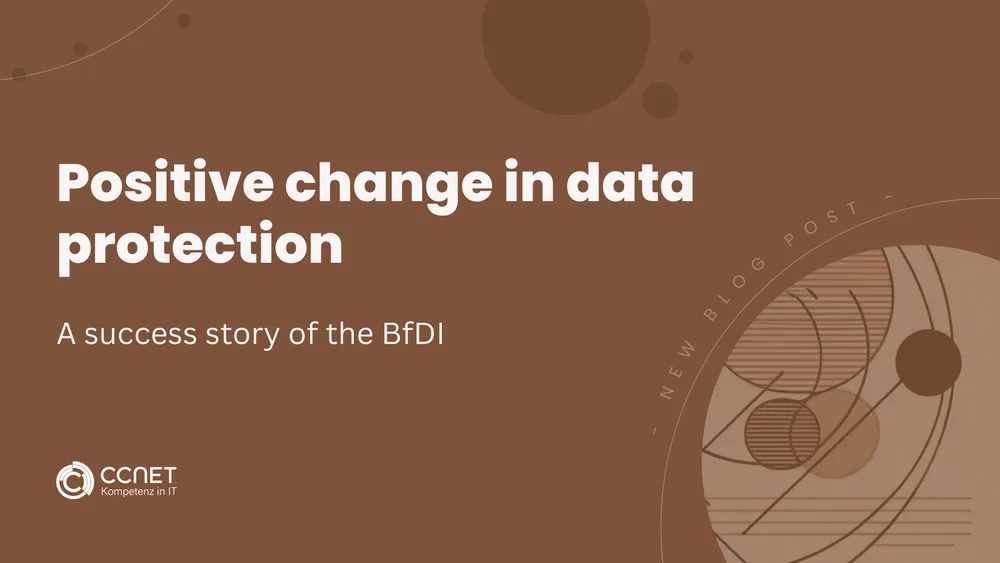
CCNet
Sep 30, 2024 • 2 min read

Data Protection and Democracy in Digitalization
In the past, data protection might have been viewed as a rather technical matter or as a matter of personal caution. Today, however, in an era where our digital presence is almost as significant as our physical one, it becomes clear that data protection is much more. It is a fundamental issue of civil rights and a crucial factor for the maintenance of democracy. The BfDI report emphasizes that without robust data protection measures, the foundations of our democratic society—transparency, trust, and freedom of expression—could be undermined.
The Role of the BfDI: Progress and Challenges
The BfDI's report paints a picture of progress amid challenges. It notes an increasing awareness of data protection issues among the public, yet also a growing complexity of threats to our privacy. The work of the BfDI over the past year—from enforcing the General Data Protection Regulation (GDPR) to advising companies and public bodies—has significantly contributed to enhancing the protection and security of personal data.
Digitalization and Its Challenges
Digitalization brings many benefits, from improved access to information to new forms of communication and social engagement. However, it also brings new risks to privacy. The BfDI report highlights that with the increasing interconnectedness and the use of cloud services, IoT devices, and artificial intelligence, the volume and type of data collected are growing exponentially. This development requires constant adaptation and strengthening of our data protection practices.
Our Responsibility
The responsibility for data protection does not lie solely with regulatory authorities or providers of digital services. Each of us plays a role. By educating ourselves about our rights, carefully considering what data we share online, and supporting companies that take data protection seriously, we can make a difference. The BfDI report is a call to action, not just for policymakers and businesses, but for all of us.
Conclusion
The BfDI's annual report makes it clear that protecting our personal data and preserving information freedom are crucial for the future of our democratic society. As digitalization progresses, we must ensure that our data protection laws and practices keep pace. This requires commitment and collaboration at all levels—from individuals to businesses to governments.
I invite you to join this discussion. How do you see the developments in data protection in your field of work? What measures do you think are necessary to protect our privacy in the digitally connected world?
By working together, we can strike a balance between the benefits of digitalization and the indispensable protection of our personal data.


